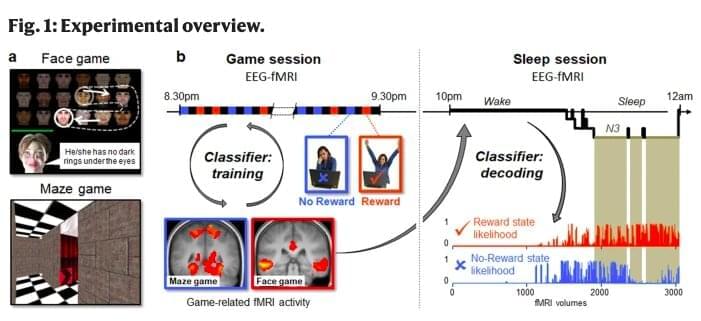Past neuroscience studies have consistently showed that sleep plays an important role in memory consolidation. For instance, some neuroimaging research showed that the brain regions that are activated while humans are encoding waking experiences can later be reactivated during sleep, particularly during non-rapid eye movement (NREM) sleep.
Interestingly, the same brain regions are also associated with increased local slow-wave activity (SWA). Interestingly, the activation of these brain regions and SWA are known to be associated with two mechanisms related to memory optimization, namely neural replay and synaptic homeostasis. These mechanisms are typically associated with improvements in behavior over time.
Researchers at University of Geneva in Switzerland have recently carried out a study aimed at investigating the ways in which the brain selects memories that will be reprocessed during sleep. Their findings, presented in a paper published in Nature Communications, suggest that the brain tends to prioritize the consolidation of memories or life experiences with high motivational relevance, namely those associated with rewards.
